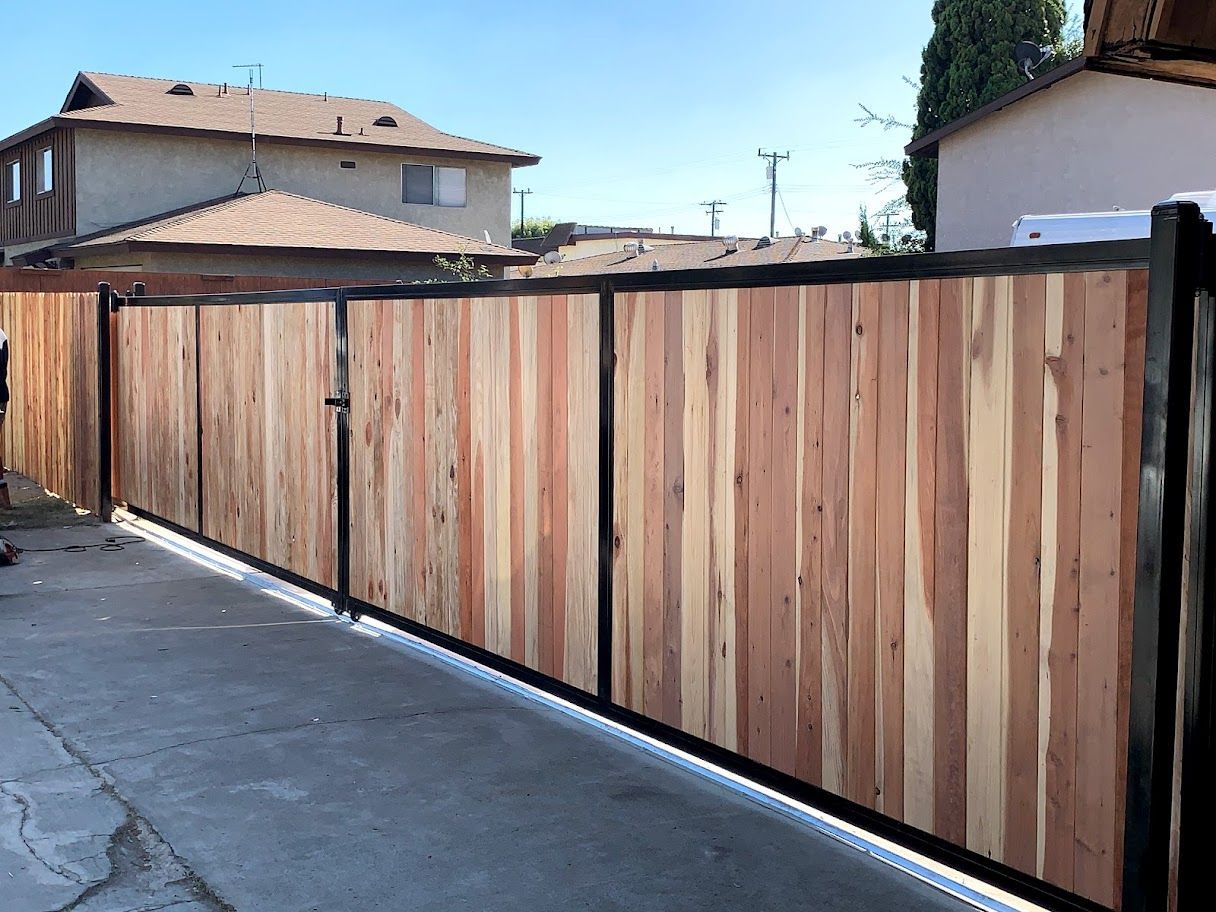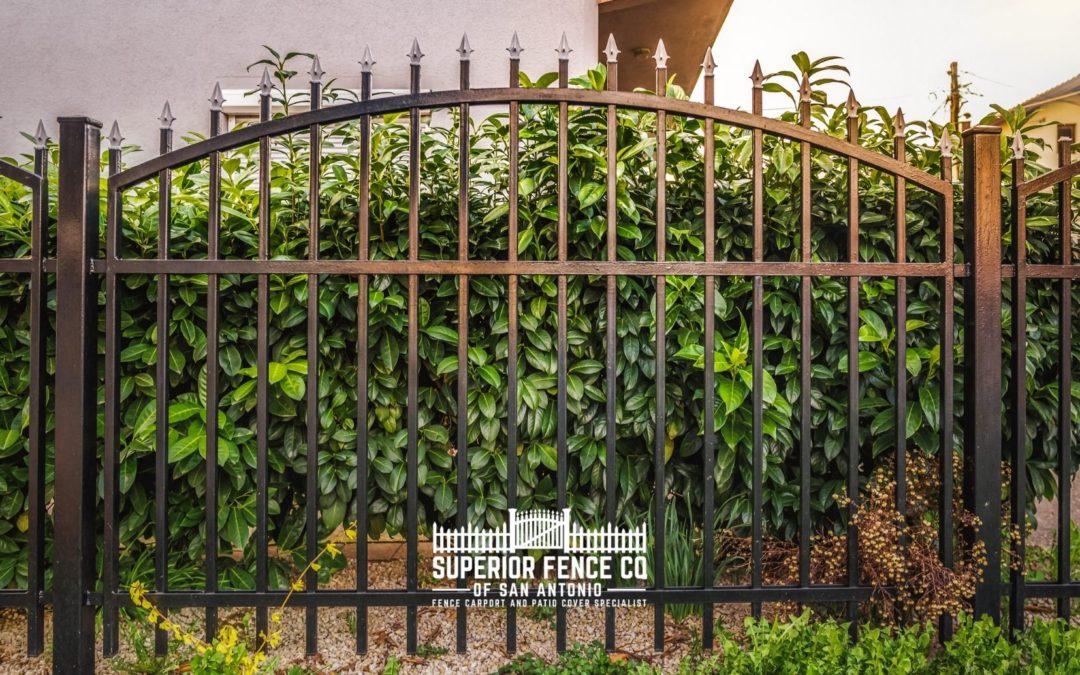All Categories
Featured
When you determine to set up a fence around your residential property, it's necessary to comprehend the authorization requirements certain to your location. Right here's a thorough appearance at the authorizations you might need for fencing installation.
Why Do You Need a Permit for Fence Installation? A fencing is more than just an obstacle between properties-- it can influence security, property value, looks, and even environmental conditions. City governments need authorizations to ensure that fencings meet certain requirements and do not create problems for energies, neighbors, or the community overall. Permits additionally make sure that the setup follows zoning legislations, developing codes, and safety regulations.
![]()
Kinds Of Permits You May Need. Structure Permit. A building permit is one of the most typical permits needed for fencing installation. If you're developing a fence over a specific height (normally over 6 feet), you'll likely require a building license.
Zoning License. A zoning permit guarantees your fence abides with area, trouble, and elevation policies. Fences might need to be established back a certain distance from walkways, roads, or residential or commercial property lines to stop blockage or disturbance with utilities.
HOA Authorization. You may require to seek approval prior to installing a fencing if your property is component of a homeowners organization (HOA) HOAs commonly have guidelines that regulate the appearances and structure of fencings to ensure they are in consistency with the area. You could need to send your strategies for approval, and the HOA might restrict fencing elevation, product, or design.
Specialty Permits. In some locations, there might be added authorizations needed for details situations. If your fence is near a protected environmental location or situated in a flooding area, you may need to obtain specialty authorizations connected to environmental effect. Similarly, if the fencing is in a location with below ground utilities, you might require to get clearance to avoid harmful pipelines or cords.
![]()
Easement or Utility Company Authorization. Before mounting a fencing, it's critical to examine whether the residential or commercial property consists of an easement, such as an energy easement, which can influence where you can position your fencing. Easements are locations of land assigned for exclusive or public utilities, and you might require authorization from the utility business or other authority to construct within this location.
Exactly How to Learn What Permits You Required. To make certain that you're adhering to all the essential regulations, right here's just how you can establish the specific permits required for your fence setup:
![]()
Go To Your City Government Office: The initial step is to talk to your regional structure or zoning division. Several cities and regions have standards available online that specify what types of authorizations are required for fence installation. Otherwise, calling or going to the workplace in individual can help clear up the process. Check Your City's Site: Many districts provide information regarding fencing installations and the authorizations required with their main internet sites. Some internet sites even enable you to submit applications online. Speak With a Fencing Installation Expert: If you're uncertain concerning local laws, a specialist fence contractor can help. They are acquainted with the allowing process and can assist you with the actions. The Effects of Not Obtaining a License. Stopping working to secure the essential permits before installing a fence can cause significant consequences. You might be fined or needed to get rid of the fencing totally. Additionally, if you determine to sell your building in the future, the absence of an authorization might hinder prospective purchasers, as they may see it as a sign that the property is not certified with local laws. Ensuring that you have the correct licenses will save you time, money, and migraines in the lengthy run.
Final thought. Setting up a fencing around your house can add both security and visual appeal, however it is necessary to ensure you're complying with the legal steps in the procedure. Researching the details authorization demands for your area, consisting of building permits, zoning guidelines, HOA approval, and utility approvals, will certainly aid guarantee your fencing installment goes efficiently. Making the effort to understand these needs now can save you from costly errors and potential lawful concerns down the line.
Why Do You Need a Permit for Fence Installation? A fencing is more than just an obstacle between properties-- it can influence security, property value, looks, and even environmental conditions. City governments need authorizations to ensure that fencings meet certain requirements and do not create problems for energies, neighbors, or the community overall. Permits additionally make sure that the setup follows zoning legislations, developing codes, and safety regulations.

Kinds Of Permits You May Need. Structure Permit. A building permit is one of the most typical permits needed for fencing installation. If you're developing a fence over a specific height (normally over 6 feet), you'll likely require a building license.
Zoning License. A zoning permit guarantees your fence abides with area, trouble, and elevation policies. Fences might need to be established back a certain distance from walkways, roads, or residential or commercial property lines to stop blockage or disturbance with utilities.
HOA Authorization. You may require to seek approval prior to installing a fencing if your property is component of a homeowners organization (HOA) HOAs commonly have guidelines that regulate the appearances and structure of fencings to ensure they are in consistency with the area. You could need to send your strategies for approval, and the HOA might restrict fencing elevation, product, or design.
Specialty Permits. In some locations, there might be added authorizations needed for details situations. If your fence is near a protected environmental location or situated in a flooding area, you may need to obtain specialty authorizations connected to environmental effect. Similarly, if the fencing is in a location with below ground utilities, you might require to get clearance to avoid harmful pipelines or cords.

Easement or Utility Company Authorization. Before mounting a fencing, it's critical to examine whether the residential or commercial property consists of an easement, such as an energy easement, which can influence where you can position your fencing. Easements are locations of land assigned for exclusive or public utilities, and you might require authorization from the utility business or other authority to construct within this location.
Exactly How to Learn What Permits You Required. To make certain that you're adhering to all the essential regulations, right here's just how you can establish the specific permits required for your fence setup:

Go To Your City Government Office: The initial step is to talk to your regional structure or zoning division. Several cities and regions have standards available online that specify what types of authorizations are required for fence installation. Otherwise, calling or going to the workplace in individual can help clear up the process. Check Your City's Site: Many districts provide information regarding fencing installations and the authorizations required with their main internet sites. Some internet sites even enable you to submit applications online. Speak With a Fencing Installation Expert: If you're uncertain concerning local laws, a specialist fence contractor can help. They are acquainted with the allowing process and can assist you with the actions. The Effects of Not Obtaining a License. Stopping working to secure the essential permits before installing a fence can cause significant consequences. You might be fined or needed to get rid of the fencing totally. Additionally, if you determine to sell your building in the future, the absence of an authorization might hinder prospective purchasers, as they may see it as a sign that the property is not certified with local laws. Ensuring that you have the correct licenses will save you time, money, and migraines in the lengthy run.
Final thought. Setting up a fencing around your house can add both security and visual appeal, however it is necessary to ensure you're complying with the legal steps in the procedure. Researching the details authorization demands for your area, consisting of building permits, zoning guidelines, HOA approval, and utility approvals, will certainly aid guarantee your fencing installment goes efficiently. Making the effort to understand these needs now can save you from costly errors and potential lawful concerns down the line.
Latest Posts
Find Affordable Auto Repairs with Montclare’s Limited-Time Service Specials
Published en
1 min read
Learn About Auto Services & More: Complete Services Guide from Montclare Auto Repair
Published en
1 min read
Discover Special Auto Repair Deals in Chicago at Montclare Auto Repair
Published en
1 min read
More
Latest Posts
Find Affordable Auto Repairs with Montclare’s Limited-Time Service Specials
Published May 29, 25
1 min read
Learn About Auto Services & More: Complete Services Guide from Montclare Auto Repair
Published May 26, 25
1 min read
Discover Special Auto Repair Deals in Chicago at Montclare Auto Repair
Published May 25, 25
1 min read